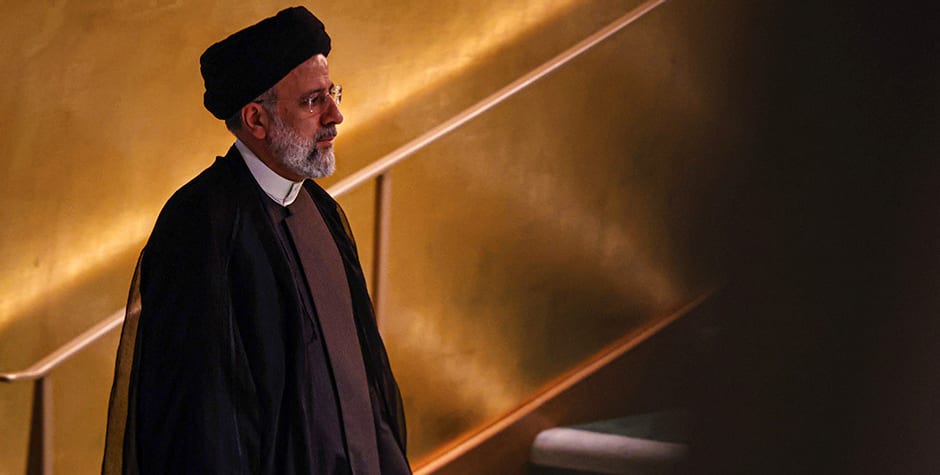The Butcher Is Dead
Listen tothis article
Over the weekend, Iran’s president and foreign minister were killed when their helicopter experienced a “technical failure” and went down in a mountainous region of Iran, disintegrating upon impact. After a nearly 15-hour search, the deaths of President Ebrahim Raisi and Foreign Minister Hossein Amir-Abdollahian were confirmed by Iranian State TV.
Very few are memorializing Ebrahim Raisi. Notably, two of the world’s harshest dictators, Chinese President Xi Jinping and Russian President Vladimir Putin, offered their condolences.
Raisi’s tragic death is a great loss to the Iranian people, and the Chinese people also lost a good friend.
Putin called him a “true friend to Russia”:
Seyyed Ebrahim Raisi was an outstanding politician whose entire life was devoted to serving his Motherland. He enjoyed the well-deserved respect of his compatriots and high prestige beyond his country. As a true friend of Russia, he made an invaluable personal contribution to the development of good neighborly relations between our countries and made great efforts to advance them to the level of strategic partnership.
Jinping is behind the genocide of the Uyghurs, and Vladimir Putin is deranged. However, Raisi was even more of a monster than both of them.
Ebrahim Raisi’s notorious moniker was the “Butcher of Tehran.” In the 1980s, he helped oversee the mass execution of thousands of political prisoners after the Iran-Iraq war. It’s estimated that Iranian authorities killed between 2,500 to 5,000 prisoners across 32 cities.
In 2017, while running for president, Raisi’s campaign posted a video to Telegram of him justifying the massacre. He called the executions “divine punishment” and a “proud achievement.”
Raisi is also known for his brutal crackdown on women. When it came to women dressing in hijab, he was very much of the mindset that they must cover up or be killed. The world saw this firsthand with the death of 22-year-old Mahsa Amini while she was in Iranian police custody. She had been arrested because her headscarf allegedly didn’t fit correctly and then died in an Iranian hospital. Her killing set off nationwide protests against the regime.
In 2023, Raisi sat down with CNN’s Fareed Zakaria for a one-on-one, in-person interview. Zakaria asked him:
Dozens of Islamic countries . . . believe women should have the choice and right to wear whatever they want and not have a patriarchal system tell them what to do. Are all of these hundreds of millions, maybe over a billion Muslims, wrong? And only the Islamic Republic of Iran is right?
Like a true coward, Raisi deflected in his response and pointed fingers:
What occurred last year was a war conducted in the media . . . [by] networks who are headquartered in the three European countries and in the United States of America who broadcast news 24 hours a day. . . . They openly teach tactics of terror. So they conduct instructional steps on how to build a cocktail Molotov. This is one of the facets of animosity of the United States of America toward the Islamic Republic of Iran, as well as that of European countries towards Iran. It’s not the hijab that matters to them. It’s not the head coverings . . . it’s not women’s rights. It’s not nuclear issues. It’s not human rights. Because there are countries such as the Zionist regime [which is] armed to the teeth with nuclear warheads or no? Why doesn’t a single voice come out of the United States and protest to that? . . . The fundamental issue [is] that today in the Islamic Republic the hijab is a law, and when an issue becomes part of the law, everyone must adhere to the laws. . . . With regard to adherence to the laws, in reality, the Americans and certain European countries are only seeking to cause a bipolar situation in our society.
I should mention that women are dancing and toasting to Raisi’s death.
So what’s next for Iran? The 63-year-old butcher was presumed by many to be the next Supreme Leader. Now the country must hold an election to replace him as president within the next 50 days.
Iran is fragile but primed for change. If instability within their government grows, there could be an all-out revolution.
Meanwhile, as uncertainty grows, the Biden Administration has offered its condolences for the death of Raisi. In lieu of flowers, they’ve sent the terrorist regime $10 billion.
